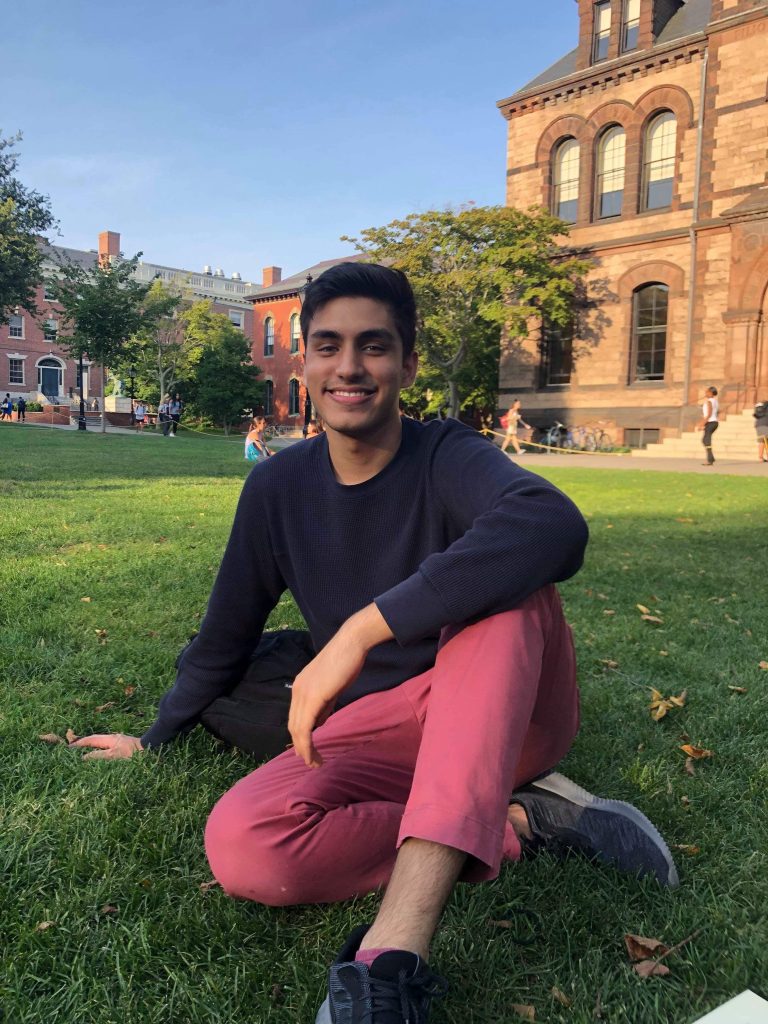Nobody wants to get ICEd out.
By Ashima Sethi and Aiden Jewelle Gonzales
In yet another senseless move that has raised ire around the world, the United States’ Immigration and Customs Enforcement (ICE) department has announced that international students whose universities are offering online-only courses will no longer be allowed to stay in the country. Since moving online is the only pragmatic option for many universities in states plagued with, well, the COVID-19 plague, this ruling is grim news for international students on a student visa, many of whom are not able to fly back to their home countries. Universities themselves, who will have to deal with the chaotic fallout, have contested the announcement, with Harvard University and MIT suing the Department of Homeland Security, citing violation of the Administrative Procedures Act.
Masala has reached out to Thailand-based students currently studying in the U.S. for their opinion on this controversial ruling, as well as how they foresee they and their studies will be affected.
Jevin Sakariya; Student at DePaul University, Chicago
Unfortunately, the recent ICE ruling has impacted all of us international students immensely. Throughout this pandemic, I have been residing at my sister’s house in Michigan, which means I am currently still situated in the US. Luckily, DePaul University is willing to go hybrid, which means I have the opportunity to take an in-person class and stay in the country.
However, the biggest question is, is it safe? Clearly, the virus is still present here and is spreading exponentially, thus my family and I are now left with the dilemma of keeping me safe. As an international student I have grown up in Thailand for the past 18 years; Thailand is my home. However, my nationality is Indian, thus India is the most probable place for me to go due to me not being able to get a Thai Visa. Sadly, many international students face the issue that their home countries aren’t coping with COVID-19 very well either. It’s very unfortunate since it makes us as international students wonder whether ICE even considers our safety a priority.
Saloni Kothari; Student at University of California, Los Angeles (UCLA), California
In a nutshell, we’re being told to get sick or get out. My daily attempts to rationalize the ICE regulation from the perspective of American economists, health experts and educators are to no avail. International students have been treated like cash cows in the U.S.; we pay the most tuition and heavily subsidise the price of education for everyone else, but we are mostly restricted to on-campus jobs like serving food or selling computers when we attempt to make up for it.
It took me over three months to go through the paperwork and logistics of getting back to Bangkok on a repatriation flight, but I knew it was worth it because I’d be with my family and stay until January. Finding out on the eighth day of my quarantine that I would have to leave again in a month to retain my student status crushed me. At this point, I’d rather take the semester off than fly back to the U.S. amidst a pandemic and pay rent, only to attend an in-person tap dance class to avoid deportation. It’s humiliating, rude and xenophobic.
Tamanna Sachdev; Student at Parsons School of Design, The New School, New York
COVID-19 has disrupted global education to an unprecedented extent never seen before. As an incoming sophomore, the new ruling by ICE came as a shock, raising the bar of uncertainty. However, knowing that universities are taking action to protect international students, I am hopeful that this issue will be tackled in an accommodating manner. Whilst waiting for updates, I aim to use the resources available to me and educate myself more so I can make a difference both individually and collectively. I hope that institutions like ICE recognise the diverse cultures that make up the student body and become part of the solution, not the problem.
Suyash Kothari; Student at Brown University, Rhode Island
I’m just tired of the current US administration, to be honest. I’m having to choose between either going back to Brown and risking jeopardizing my visa if the university ever needs to go fully online (not improbable given the increasing number of cases in the US), studying remotely from home and risking my visa again, or simply taking a leave of absence. It is frustrating, but I’m fortunate to be in Thailand where I can at least see my friends and start to feel a sense of normalcy, very much unlike my friends in other countries.
Roopesh Krishnamoorthy; Student at the University of Washington, Washington
I don’t see how it makes sense of ICE to instigate a ban against international students. We pay taxes and manage and update our student visas on a regular basis to abide to all the laws. International students contribute roughly US$ 45 billion to the economy on an annual basis, which is not surprising considering we pay almost triple the student fees compared to local students. Despite all of this, the government really thinks it’s fair to kick us out of the country and expect us to pay full tuition?
The whole situation is just ludicrous. We’re in the middle of a pandemic and international students are not to blame for the current state of the nation. Rather, ICE need to re-evaluate how much international students actually contribute to the USA. I’m hoping to pursue a degree in physical therapy in Texas soon, and luckily, because it’s a medical degree, I’ll have in-person classes to ensure hands-on experience. However, my heart goes out to those who risk being deported.











